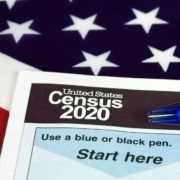THIS March, households across Nevada will be asked to fill out a questionnaire for the 2020 Census. Make sure that each and every member of your household is counted.
AAPI Nevadans, completing the 2020 Census is especially important, as Asian American and Pacific Islanders are at a particularly high risk of being undercounted. A recent report by the Census Bureau found only about half of Asian Americans said they were “extremely” or “very” likely to respond to the census, compared to 69% of white respondents.
Members of the AAPI community face unique barriers to participation. For one, Asian Americans are the racial group that reported being least familiar with the census. This may be in part because many members of our AAPI communities are immigrants. It may also explain why 4 out of 10 Asian Americans worry the information they share with the census could be used against them.
For these reasons, I want to dispel some of the myths around the census and personally encourage everyone in Nevada’s AAPI community to make their voice heard.
First, the census is completely confidential. The Census Bureau is forbidden from releasing personally identifiable information, and your responses cannot be used against you by the government, law enforcement, or any court. While the census collects important demographic information – age, birthplace, race – you will not be asked about your citizenship status. Last summer, the United States Supreme Court blocked the Trump Administration’s efforts to politicize the census by including a citizenship question in the 2020 questionnaire. The census was created to count every person living in the United States, regardless of their immigration status, and I’ll fight to keep it that way. Rest assured that your information is safe.
The census serves many purposes. For example, it determines how many representatives in Congress each state receives. States also rely on census data to draw voting districts for federal, state, and local elections, which can determine the voting power of AAPI and other minority communities. It also helps the federal government monitor compliance with civil rights, voting rights, and anti-discrimination laws.
Just as importantly, the federal government distributes money from various federal programs to each state based on population. In 2015 alone, the federal government used 2010 Census data to funnel $675 billion to states through dozens of federal programs. With accurate census figures, the federal government can award states and communities their fair share of money for programs to fund health care, highway construction, education, child care and much more.
It’s crucial that every Nevadan is included in the census tally. An undercount of AAPI Nevadans would have serious repercussions for communities across our state. It could mean less money from federal programs that help AAPI families and could even impact AAPI political power in the Silver State.
That’s why the state of Nevada, and a variety of nonprofit groups are working so hard to make sure every single person is counted. It’s why Governor Steve Sisolak created Nevada’s Complete Count Committee to raise awareness of the census. You’ll be hearing much more about these efforts later this month.
Until then, I’m doing everything I can to ensure that the 2020 Census counts every Nevadan. I encourage you to help us count all the people in your household, so that our communities get the resources they deserve.
***
Born and raised in Las Vegas, Catherine Cortez Masto has spent her career fighting for Nevada’s working families. She served two terms as Attorney General of Nevada and in November 2016, she made history by becoming the first woman from Nevada and the first Latina ever elected to the United States Senate.






